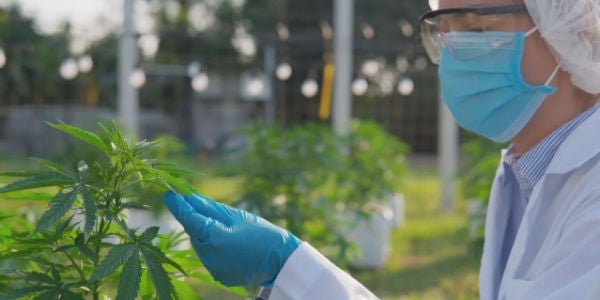Doctor of Pharmacy
Overview
Ranked among the top pharmacy schools in the Northeast, our dynamic 0-6 Doctor of Pharmacy (Pharm.D.) program will equip you to advance healthcare and make a meaningful impact on patients’ lives and the communities you will serve. Our program emphasizes critical thinking, patient-centered care, and clinical decision-making, while fostering teamwork, cultural humility, and a focus on population health. This foundation is strengthened through hands-on learning in diverse settings ranging from hospitals and community pharmacies to ambulatory care, industry, and beyond. With early and advanced pharmacy practice experiences tailored to your interests and career goals, plus a diverse selection of electives and rotations, you’ll graduate ready to succeed, earn a competitive salary, and thrive in over 100 pharmacy career pathways.

Program Highlights
- State-of-the-Art Learning Spaces: Gain hands-on experience in cutting-edge labs and classrooms equipped with the latest pharmacy technology, simulations, compounding facilities, and clinical decision-making software.
- Renowned Faculty: Learn from nationally-recognized educators, researchers, and clinicians with expertise in various pharmacy specialties, dedicated to your learning, well-being, and career development.
- Immersive Experiential Learning: Apply your knowledge through in-depth early and advanced pharmacy practice experiences (IPPEs and APPEs) in hospitals, community pharmacies, ambulatory care, industry, and more, tailored to your interests and career goals.
- Research Opportunities: Engage with faculty in impactful research projects advancing pharmaceutical science, health outcomes, and public health.
- Personalized Career Support: Benefit from one-on-one career advising, resume workshops, mock interviews, job fairs, and extensive networking opportunities. With access to 6,800+ alumni and support from your first year through graduation and beyond, we help you secure your ideal role and build a successful career.
- Supportive Community: Join a welcoming, inclusive community that fosters both personal and professional growth. Explore leadership opportunities through student organizations, service-learning, global health experiences, and professional conferences, all designed to help you thrive.
Why Study Pharmacy at URI?
Joint Degrees and Minors
Have questions?
Visit Undergraduate Admission or contact Erica Estus, Clinical Professor and Director of Recruitment and Engagement, at 401.874.7638 or rxadmission@uri.edu




